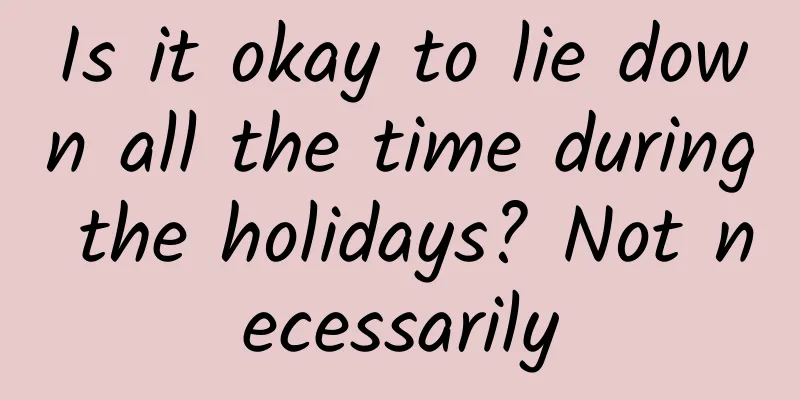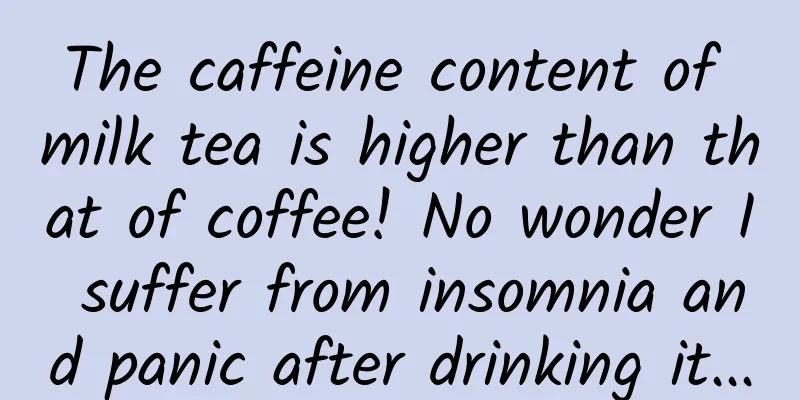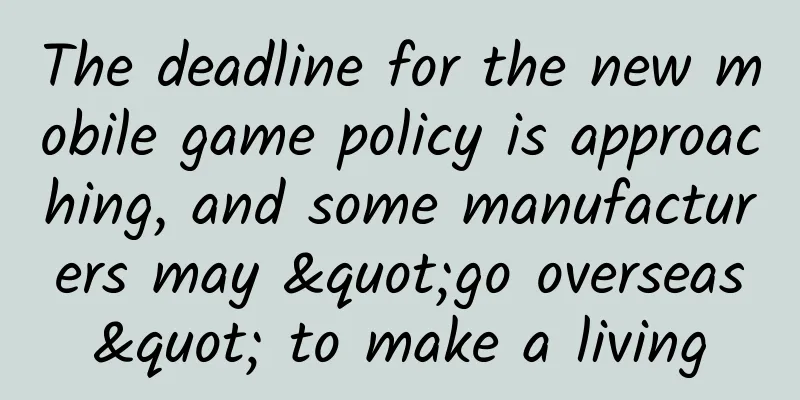Is it okay to lie down all the time during the holidays? Not necessarily

|
Produced by: Science Popularization China Produced by: Muramasa Producer: Computer Network Information Center, Chinese Academy of Sciences The short holiday is coming, is this your state this week? Image source: Weibo As for holiday plans, many people have Image source: Made by the author The pace of life is getting faster and people are getting busier. While complaining about being too busy, everyone wants to have more free time. But does it really mean that we will feel happier the more time we have? Will we be happier when we spend time slacking off or lying down? A paper published in the Journal of Personality and Social Psychology analyzed data from tens of thousands of people to study this issue. The results showed that this is not necessarily the case! Lying too flat is not that happy. This study analyzed data from 21,736 subjects who participated in the "American Time Use Survey" between 2012 and 2013. The respondents' ages ranged from 15 to 85 years old, with about half of them being "full-time workers" and half being "non-workers." The researchers asked the respondents in detail about what they had done in the past 24 hours, including what they did and how long it took. They categorized these things, calculated their free time, and reported their level of happiness at the time. The results showed that the relationship between free time and happiness is like a "parabola" - as free time increases from zero, happiness does increase accordingly; after 2 hours of free time, happiness tends to stabilize; but after 5 hours, happiness begins to show a downward trend. Image source: Translated from reference 1 The researchers also found that having too much free time was associated with less happiness, regardless of whether one was employed or not, or whether it was during the weekdays or weekends. This shows that free time to "lie down" as much as you want can indeed make people happy, but if you have too much free time, you will not be so happy. Being fulfilled and meaningful is the correct way to be happy If “lying down” can’t bring happiness, then how can we get real happiness? To clarify this question, the researchers first recruited 2,550 volunteers and divided their free time into three groups: long, medium and short. They asked them to imagine and describe in detail what they would do with this free time if they had so much free time every day for half a year. At the same time, they also asked the volunteers to report their happiness during the imagination period. The results showed that even in an experimental setting where people were asked to imagine how they would spend their free time, too much free time still led to decreased happiness. Image source: Unsplash Based on this, the researchers recruited another 5,000 volunteers and divided their free time into three groups according to the length, medium and short time. The difference is that each group of volunteers was further divided into two groups: one group was asked to imagine that they would not waste their free time and would do something useful and meaningful; the other group was asked to imagine that they would completely waste their free time and do something useless and meaningless. Image source: Translated from reference 1 The results showed that when people use their free time on meaningful things, more free time will bring higher happiness; while using it on meaningless things will bring the same results as before. Dr Sharif, the study's lead author, said: "Our results suggest that people can still be unhappy even if they have a full day of free time. People should try to use the appropriate amount of free time to satisfy their own pursuits, which will bring the highest happiness." How can we get rid of lying down and live a fulfilling and meaningful life? Self-determination theory holds that if an individual wants to achieve a high level of happiness, he or she must meet three basic psychological needs: autonomy needs, competence needs, and relationship needs. The need for autonomy refers to people's need to believe that they can choose their own actions, rather than being forced to do something. Combined with this study, we will find that having enough free time actually represents this need for autonomy. When people have enough free time, they don't have to passively accept various work tasks, but have more freedom to choose to "lie down" or do whatever they like. Image source: Unsplash However, having sufficient free time to satisfy the need for autonomy is not enough, which introduces the following two psychological needs: competence needs and relationship needs. Competence needs refer to people's desire to complete something challenging because they will gain a sense of accomplishment after completion, which will bring a higher sense of happiness. This is also consistent with the research results. If people have enough free time and spend their time on meaningful things, they will gain more happiness. Relationship needs refer to people's need to establish social relationships with others and gain social support from others to improve their sense of happiness. The results of this study also show that people who are alone in their free time will show a typical parabolic sense of happiness, while people who use their free time to socialize have a straight-line sense of happiness. Image source: Unsplash Now you see, happiness depends not only on how much free time you have, but also on how you spend it. More than 5 hours of free time will actually lead to a decrease in happiness; while if you try to get about 2 hours of free time every day and use this time to do things you like or meaningful, you will feel happier. So, how will you spend this upcoming holiday? References: (1) Sharif, MA, Mogilner, C., & Hershfield, HE (2021). Having too little or too much time is linked to lower subjective well-being. Journal of Personality and Social Psychology. (2) Sheldon, KM, Cummins, R., & Kamble, S. (2010). Life balance and well-being: Testing a novel conceptual and measurement approach. Journal of Personality, 78(4), 1093-1134. (3) Sheldon, KM, & Niemiec, CP (2006). It's not just the amount that counts: Balanced need satisfaction also affects well-being. Journal of personality and social psychology, 91(2), 331. (4) Grant, AM, & Schwartz, B. (2011). Too much of a good thing: The challenge and opportunity of the inverted U. Perspectives on psychological science, 6(1), 61-76. |
>>: To observe the sky, you need a favorable location. Where is the best home for a telescope?
Recommend
Guangdiantong information flow advertising delivery model
Tencent has two major information flow platforms,...
Dry eyes...how did it become a terminal illness?
How many times have you watched "Kuaisan&quo...
Breaking the high temperature record for 13 consecutive months, what have we experienced in 2024
2024 is already in the past. In the past year, we...
A brief analysis of Android Root, do you understand?
[[427920]] This article is reprinted from the WeC...
Detailed explanation of the latest process for submitting Apple iOS APPs for listing, a practical guide for novices to list on the App Store!
Let me first briefly talk about the steps of list...
Live streaming and street stall economy
Operator thinking is a complete thinking framewor...
Deyang Mini Program Production Company, how much does it cost to make a red envelope mini program?
The launch of mini programs has brought convenien...
Top 10 marketing promotion trends in 2020
With only one week left in 2019, it’s time to loo...
School is about to start. How can we help children adjust their mindset to welcome the new semester?
Winter vacation is coming to an end. Are your chi...
Stop worrying about Google Glass
In recent days, the Google Glass incident has att...
APP rapid operation and promotion, never miss the new media channel operation
When most APP operators are operating, they want ...
Private domain traffic marketing promotion guide!
Some ideas on drainage channels and soft article ...
Trust me, 20 minutes is enough.
Have you heard of the "20-minute park effect...
Why is it harder to grab red envelopes this year? Plugins are the culprit
The red envelopes developed by the WeChat team in...
Electric Technology Car News: Can the stylish exterior and exquisite interior of Jingyi X5 successfully break the existing SUV pattern?
On August 21, Dongfeng Fengxing's Jingyi X6 1...









